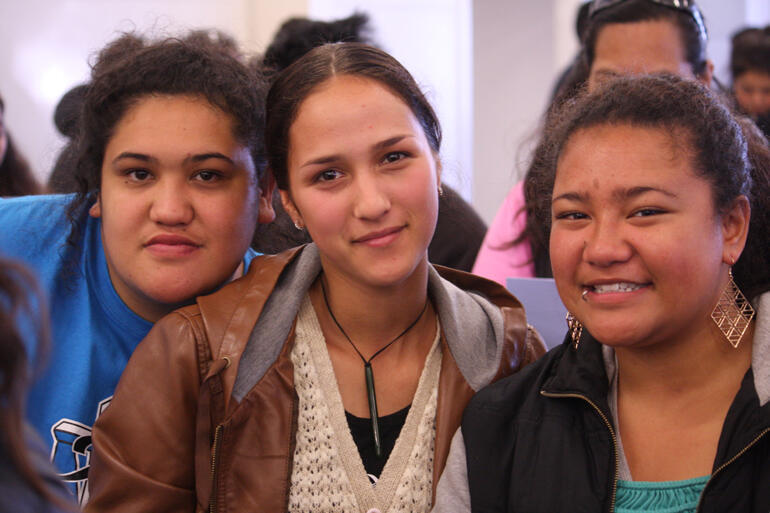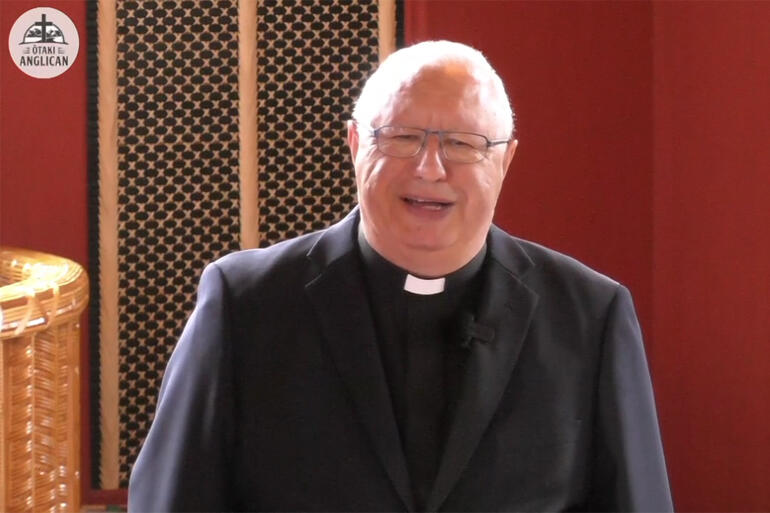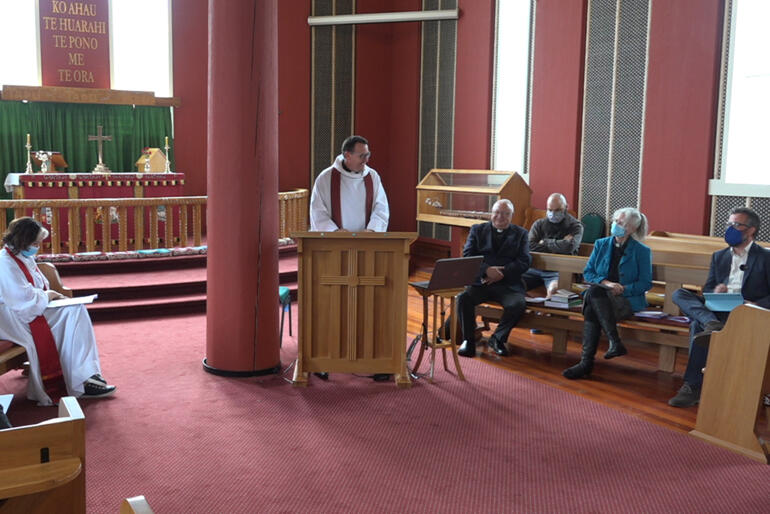


This Waitangi Day on Sunday 6 February Rev Dr Rangi Nicholson spoke to a joint gathering of Pākehā and Māori Anglicans at Rangiātea Church in Ōtaki on his vision of a brighter future full of Treaty hope.
Rangi Nicholson, who is a scholar of ‘Treaty, Church and Nation’ told the people at Ōtaki that the Treaty of Waitangi is a living document in the minds of this generation of young Māori, and their questions of the Church’s role in it are lively too.
Rangi wants the Anglican Church to join him in viewing the Treaty of Waitangi as a document steeped in biblical hope.
Along with Archbishop Emeritus Sir David Moxon – who preached on the Gospel and the Treaty at Ōtaki by Zoom this year – Rangi hopes for a future where the righteousness and peace of Christ will undergird the relationships between Māori, Pākehā and all people in Aotearoa New Zealand.
This Waitangi Day, Rangi also shared how today conversations are well underway in te ao Māori on what a new constitution for Aotearoa New Zealand might look like in time for the Treaty’s 200th anniversary in 2040.
Looking forward to that day, Rangi wants rangatahi Māori to know they can place their trust in Christ and his Hāhi Mihinare. He wants them to see proof that the people who bear Christ’s name in the Anglican Church have stood up for them, and played their part in making sure that Aotearoa will always be a place where they can live and thrive as Māori.
It saddens him that today, the word mihinare (missionary) leads some young people to question our Church’s love for them.
“One of the challenges of the Māori Anglican Church is young Māori who believe the missionaries were complicit in dishonouring the Treaty.” he says.
Today, Rangi knows young people in his own Ngāti Raukawa iwi who have rejected the Anglican Church, because they say its missionaries were complicit in allowing the colonial Government to illegally seize 260,000 hectares of Ngāti Raukawa land – making this iwi one of the most landless in Aotearoa. He’s not surprised those young people look back and ask the question why.
Why if the Church loved their tūpuna, did it fail to protect them and their families from harm?
This Waitangi Day is the third year that Pākehā and Māori parishes in Ōtaki have gathered together to share in worship and take a closer look at the past, in the hope of moving towards a better future. In 2022, Māori Anglican lawyer and priest Rev Māmari Stephens (Video at 1:37:20) and legal historian Dr Samuel Carpenter (Video at 1:51:47) joined the conversation about the Treaty’s future.
Those meetings are going ahead because in Ōtaki, the Māori and Pākehā churches aren’t waiting for a new constitution before they make a move, or looking to the Government for answers.
Instead, as Christians they are starting with friendship first – more accurately, with whanaungatanga – the Māori concept of the kind of friendship that links people together into a family. And they are doing that by practicing manaakitanga with one another, choosing to keep on taking the first step of offering kindness and hospitality.
Rangi says that if we look back, it’s that kind of radical Christian friendship that formed the grounds for both peoples to sign the Treaty covenant in 1840.
“It was only due to radical whanaungatanga and manaakitanga between the missionaries and the Ngāpuhi people that the Treaty was even possible.”
“It is my hope that just as the Church was the yeast back in 1840, we should not be shy to act again in order to bring about transformation, in bold and loving ways.”
For many years now, Māori thinkers have debated the vision of a land where Māori and the newer peoples in this land live side by side, empowered and resourced to live in cultural integrity and in partnership with one another.
Rangi believes the Anglican Church has a valuable voice to offer to this conversation, which today is converging in plans for constitutional change.
Back in 2010, the Māori Tribal Chairs recognised that New Zealand law hadn’t caught up with a new generation of Māori who are determined to remove any barriers to fulfilling their hopes for a Māori-led future for themselves and their children.
So the Tribal Chairs set up an independent working group to look at constitutional transformation, known as ‘Matike Mai Aotearoa,’ tasked with finding a better way ahead.
Between 2012-2015, Matike Mai Aotearoa held 252 meetings throughout Aotearoa New Zealand to brainstorm, debate and refine what a new constitution might look like, if it were to truly support Māori aspirations for self-determination. In addition, Matike Mai held seventy youth wānanga training events.
Those Matike Mai meetings have now led to six new constitutional models that have been debated throughout Māoridom over the last seven years.
Matike Mai has also come to the conclusion that none of these models will work unless all the parties can agree on what we are aiming for together.
“A new model for the constitution can only be developed if there is clarity of underlying principles.”
That’s where Rangi says our Anglican Church has a place, especially as the same Church whose missionaries translated and helped negotiate the signing of New Zealand’s founding document.
So the challenge is what do we want to offer:
“What is the Anglican Church’s vision for Aotearoa New Zealand?
“What are the underpinning values which we can share with the nation?
“How can we strengthen Māori self-determination? and,
How can we advocate self-determination underpinned by the Gospel values of love, justice and peace?
With the gaze of rangatahi Māori upon the Māori Anglican Church, it faces the real challenge for the whole Anglican Church to get our own house in order first.
Back in the 1992 constitution, Māori in our three Tikanga Church took a major step to gain self-determination, but sadly that gain has been hindered for thirty years by a lack of determination over resources to implement its mission.
Rangi says that when the Anglican Church revisited our own constitution in 1992, we relied heavily on the Government’s understanding of underpinning Treaty principles that the Crown identified as ‘partnership, participation and protection.’
But in Otaki they heard that the Gospel calls for higher aspirations of empowering Māori Christian mission in the world than those legal interpretations leant on by the Crown.
Concluding his challenge this Waitangi Day, Rangi ended with more questions for the people of Ōtaki to ponder,
“Are we going to move down the track of not only partnership, but friendship?
“Are we going to move down the track of whanaungatanga and manaakitanga? and
“Are we going to move down the track of radical fellowship and kindness?”
And if we choose the radical Gospel way, what will the Anglican Church in Aotearoa, New Zealand and Polynesia look like in 2022, in 2040, and beyond?

















Comments
Log in or create a user account to comment.